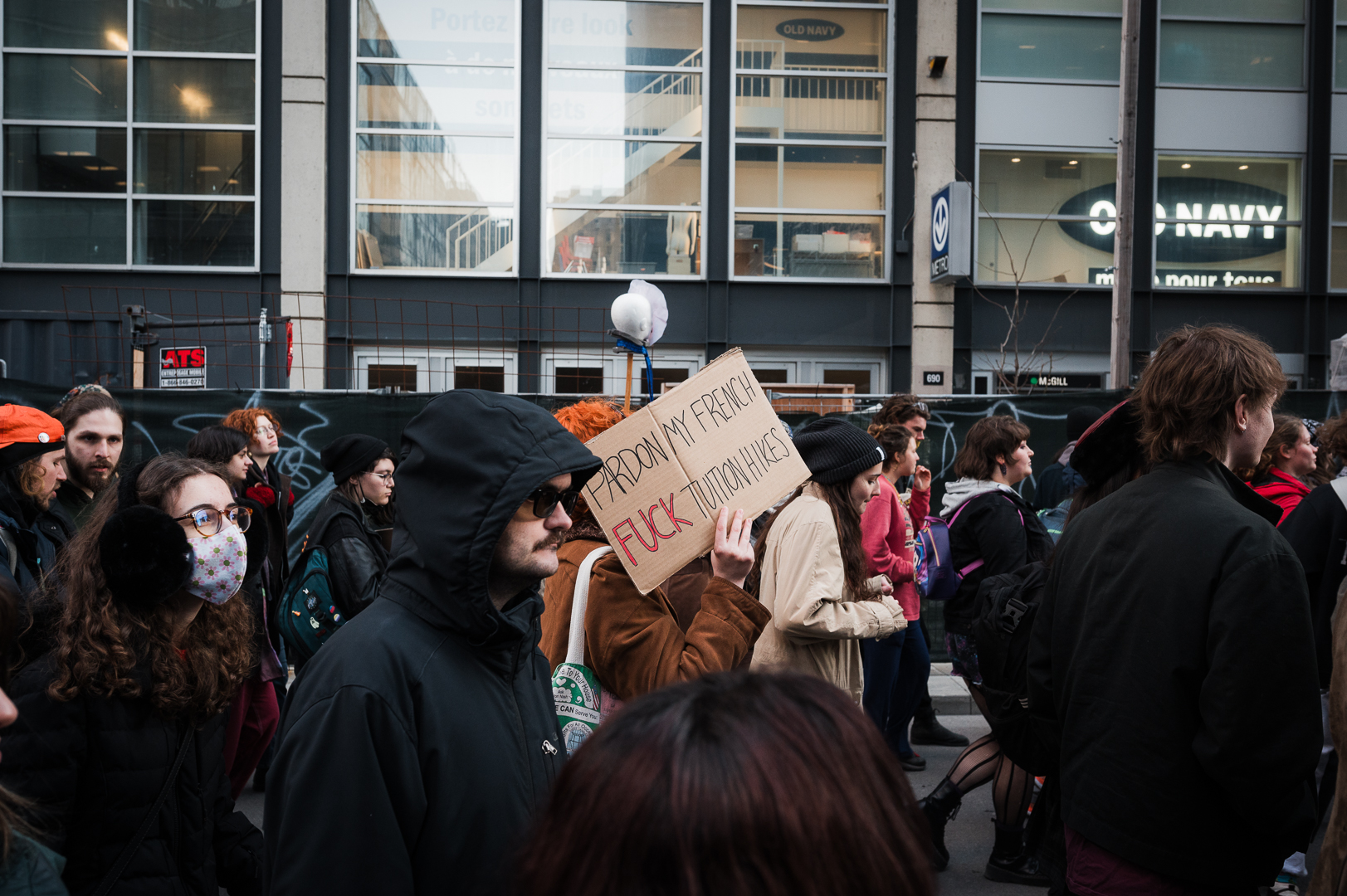In lieu of picketing, Concordia students organize demonstrations and events to mobilize students.
From March 11 through 15, Concordia saw 30,000 students across departments on strike. No strikes have continued past that week and no further strikes are being organized by Member Associations (MAs) at Concordia. However, mobilization in support of paid internships, anti-austerity actions and the ongoing strike of the teaching assistants at the Association of Graduate Students Employed at McGill (AGSEM) is still going strong.
Though the strikes are over, support for accessible and affordable education remains important to many students. Despite the lack of further strike action, those who have helped with the mobilization against tuition hikes are maintaining their support for common financial issues facing students.
The Coalition de Résistance pour l’Unité Étudiante Syndicale [Resistance Coalition for the United Student Union] (CRUES) is one key group organizing mobilization in support of students. CRUES aims to unite students across educational institutions to tackle issues faced by students.
At 12:00 p.m. on Friday, March 29, the student body at CÉGEP de Rimouski organized a demonstration against unpaid internships at the Émilie Gamlin Park. CRUES and the Social Sciences Student Association at Laval University have also expressed support for their own students’ access to paid internships.
The momentum behind such rebuttals against internship conditions has been carried over from past student strikes in Montreal, like the 2019 and 2022 strikes at UQAM demanding internship remunerations.
Jasper Cobb, an upper-year geography student at Concordia who helped organize picketing during the recent strike week, spoke to the importance of solidarity.
“It all boils down to austerity measures and capitalism, whether that’s making students pay insane amounts of money for tuition or doing unpaid labour,” they said.
This sentiment was echoed by Mowat Tokonitz, a first-year urban planning student, who pointed out that increased tuition rates are “going to affect everyone’s university experience.”
While the complete extent of service cuts at Concordia is unclear, the university is already anticipating cuts on certain services such as Adobe. Last November, Concordia spokesperson Vannina Maestracci said in an interview that the university “was looking into what the total effects of the tuition increase will be on smaller programs like creative arts,” since the majority of its students come from outside the province.
Despite the dedication of those involved in mobilization, there are no further strikes planned at Concordia. “When the strike ended, we had a long talk and came to the conclusion that we don’t really have the capacity to extend the strike or have another strike this semester,” said Cobb.
In lieu of picket lines, students have organized a demonstration on April 10 with a student mixer afterward, as well as a “DJs Against Austerity” event on May 2 at Reggies bar.
Further mobilization efforts will be planned over the summer, with further emphasis on anti-strike action being ingrained into next fall’s frosh events.
There are several opportunities for those willing to get involved in collective mobilization. Cobb and Tokonitz suggested that students reach out directly to their Instagram account (@tuitionstrikes) for general information.
